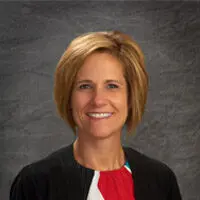About Transitions of Western Illinois – Locust Street
Transitions of Western Illinois – Locust Street is a community behavioral health clinic in Quincy, Illinois. They focus on treating individuals who have co-occurring mental health and substance use disorders through services such as psychiatric care and medication assisted treatment (MAT). Clients pay for these treatments through Medicaid and Medicare.
Evidence Based Treatment for Co-Occurring Disorders
Transitions of Western Illinois understands that substance use disorder and mental health disorder can often occur together. The facility provides co-occurring disorder treatment to help clients address both conditions at the same time. The evidence based treatments they will use to help you include individual therapy, group therapy and psychiatric services.
In group counseling, your counselor will discuss developing coping skills and relapse prevention. The coping skills you may learn about include developing hobbies and using mindfulness techniques to reduce stress.
In some cases, the mental illness that contributes to your addiction may not be resolved through talk therapy alone. Through psychiatric services, you can be prescribed medication that can minimize symptoms of mental condition such as anxiety and depression.
Relaxing Parks in Quincy
A great way to spend your time outside of treatment sessions is to go for a relaxing walk at various parks in town. The Clat Adams Bicentennial Park gives you a nice view of the Mississippi River that separates Illinois and Missouri.
Proven Medication for Addiction Recovery
In addition to medication for mental disorders, the facility also offers medication for opioid use disorder as a part of their medication assisted treatment services. Medications such as naltrexone and Suboxone can minimize withdrawal symptoms and allow you to be more focused on your treatment in counseling.
Latest Reviews
Rehab Score
Accepted Insurance
Other Forms of Payment
Medicaid is a state based program that helps lower-income individuals and families pay for healthcare. Medicaid covers addiction treatment so those enrolled can use their coverage to pay for rehab. When a program accepts Medicaid the client often pays very little or nothing out of their own pocket.
Private insurance refers to any kind of healthcare coverage that isn't from the state or federal government. This includes individual and family plans offered by an employer or purchased from the Insurance Marketplace. Every plan will have different requirements and out of pocket costs so be sure to get the full details before you start treatment.
Self-pay involves paying for treatment out of your own pocket. You can use savings or credit, get a personal loan, or receive help from family and friends to fund your treatment. If you don't have insurance or your insurance plan doesn't cover a specific program, self-pay can help ensure you still get the care you need.
Financial aid can take many forms. Centers may have grants or scholarships available to clients who meet eligibility requirements. Programs that receive SAMHSA grants may have financial aid available for those who need treatment as well. Grants and scholarships can help you pai for treatment without having to repay.
Medicare is a federal program that provides health insurance for those 65 and older. It also serves people under 65 with chronic and disabling health challenges. To use Medicare for addiction treatment you need to find a program that accepts Medicare and is in network with your plan. Out of pocket costs and preauthorization requirements vary, so always check with your provider.
Addiction Treatments
Levels of Care
Residential treatment programs are those that offer housing and meals in addition to substance abuse treatment. Rehab facilities that offer residential treatment allow patients to focus solely on recovery, in an environment totally separate from their lives. Some rehab centers specialize in short-term residential treatment (a few days to a week or two), while others solely provide treatment on a long-term basis (several weeks to months). Some offer both, and tailor treatment to the patient's individual requirements.
Treatments
Mental health rehabs focus on helping individuals recover from mental illnesses like bipolar disorder, clinical depression, anxiety disorders, schizophrenia, and more. Mental health professionals at these facilities are trained to understand and treat mental health issues, both in individual and group settings.
Programs
Adult rehab programs include therapies tailored to each client's specific needs, goals, and recovery progress. They are tailored to the specific challenges adult clients may face, including family and work pressures and commitments. From inpatient and residential treatment to various levels of outpatient services, there are many options available. Some facilities also help adults work through co-occurring conditions, like anxiety, that can accompany addiction.
Young adulthood can be an exciting, yet difficult, time of transition. Individuals in their late teens to mid-20s face unique stressors related to school, jobs, families, and social circles, which can lead to a rise in substance use. Rehab centers with dedicated young adult programs will include activities and amenities that cater to this age group, with an emphasis on specialized counseling, peer socialization, and ongoing aftercare.
Clinical Services
Cognitive Behavioral Therapy (CBT) is a therapy modality that focuses on the relationship between one's thoughts, feelings, and behaviors. It is used to establish and allow for healthy responses to thoughts and feelings (instead of unhealthy responses, like using drugs or alcohol). CBT has been proven effective for recovering addicts of all kinds, and is used to strengthen a patient's own self-awareness and ability to self-regulate. CBT allows individuals to monitor their own emotional state, become more adept at communicating with others, and manage stress without needing to engage in substance abuse.
Group therapy is any therapeutic work that happens in a group (not one-on-one). There are a number of different group therapy modalities, including support groups, experiential therapy, psycho-education, and more. Group therapy involves treatment as well as processing interaction between group members.
In individual therapy, a patient meets one-on-one with a trained psychologist or counselor. Therapy is a pivotal part of effective substance abuse treatment, as it often covers root causes of addiction, including challenges faced by the patient in their social, family, and work/school life.
Amenities
-
Residential Setting
Staff

Mark Schmitz, LCSW
Executive Director

Marcie Kramer, BA
Director of Human Resources

Jessica Peters, LCSW
Director of Mental Health and Children’s Services

Angela Dean, BA
Director of Finance

Melissa O'Hearn
Director of Quality Improvement & Compliance

Allen Shafer
Chairperson

Shirley Longlett
Vice Chairperson

Steve Schmitt
Secretary
Contact Information
4409 Maine Street
Quincy, IL 62305




